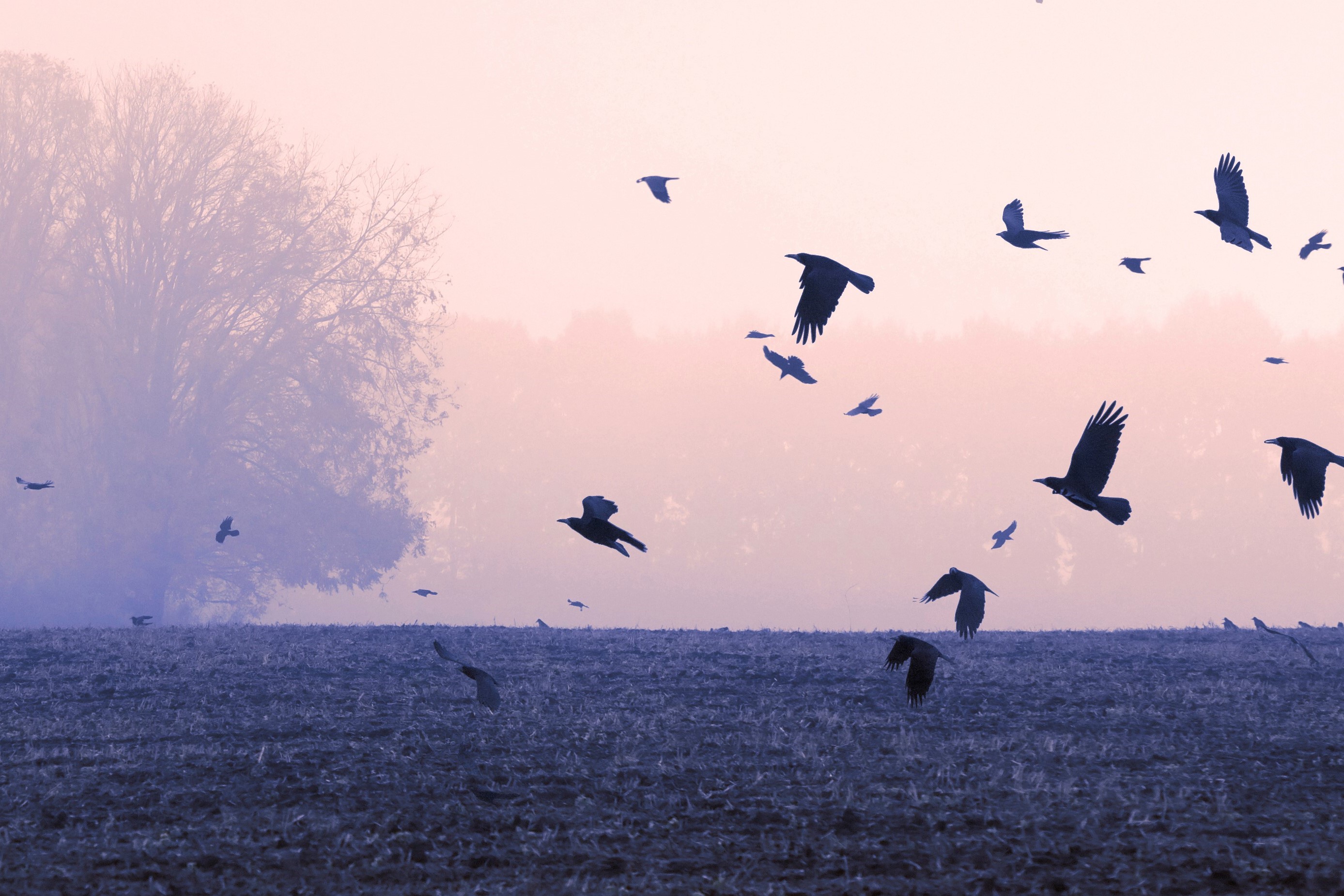
John Keats
Alexandra Howe on Keats and negative capability | Issue 14 | 2018


Men heard this roar of parleying starlings, saw,
A thousand years ago even as now,
Black rooks with white gulls following the plough
So that the first are last until a caw
Commands that last are first again, – a law
Which was of old when one, like me, dreamed how
A thousand years might dust lie on his brow
Yet thus would birds do between hedge and shaw.
Time swims before me, making as a day
A thousand years, while the broad ploughland oak
Roars mill-like and men strike and bear the stroke
Of war as ever, audacious or resigned,
And God still sits aloft in the array
That we have wrought him, stone-deaf and stone-blind.
February afternoon
Edward Thomas composed this sonnet in February 1916. He had caught a chill and was on leave from Hare Hall training camp outside London, where he worked as a navigation instructor. He had enlisted seven months previously, though at 37 years old, with a young family, there was no obligation on him to do so. ‘He could have been safe, if he had chosen to be’, said his friend, the writer Eleanor Farjeon. Instead, Thomas joined the Artists Rifles, at first teaching map-reading to the men and later volunteering to go out to the front in France.
Nearly all of Thomas’s poems were written in the three years between 1914 and his death in 1917. It is as though a lifetime’s worth of poems poured from his pen during this time. He wrote ‘war poetry’ long before he reached the trenches: nearly sixty poems between enlisting and embarking for the front. Thomas does not seem a conventional ‘war poet’; war is somehow in the margins of his poetry. Consider ‘February Afternoon’: ‘war’ is only directly mentioned towards the end, and even then it is in the abstract. Yet it touches the opening lines, in the ‘roar of parleying starlings’, the ‘commands’, the ominous, scavenging ‘black rooks’.
At the time of writing, Thomas was still ambivalent about serving overseas. He wrote to his wife of his ‘calm acceptance’ of life at camp, how the ‘black despair’ that had dogged him was receding. And yet, in the marching, decasyllabic lines of ‘February Afternoon’ there is a sense of inexorability – of a path mapped out long ago (‘A thousand years ago even as now’, ‘a law | Which was of old’) – which prefigures perhaps that final decision which led him to the trenches and his death.
It was an eerie death. Pausing in the doorway of his dugout to light his pipe, on the first day of the Battle of Arras, he was killed by a shell landing nearby. There was not a scratch on his body; his pipe lay unbroken beside him. The vacuum caused by the shell as it passed simply sucked the air from his lungs and stopped the poet’s heart.
© Edward Thomas, 1979, reproduced under licence from Faber and Faber Limited..Our thanks to the First World War Poetry Digital Archive, University of Oxford.
© Norton Rose Fulbright LLP 2025